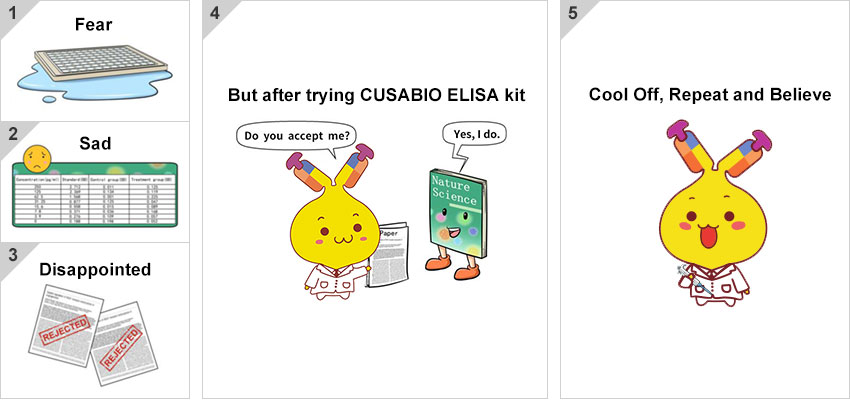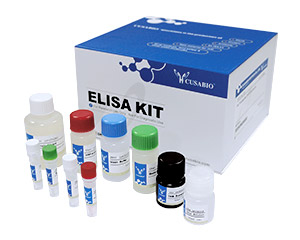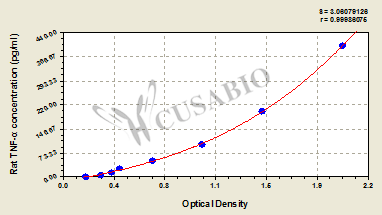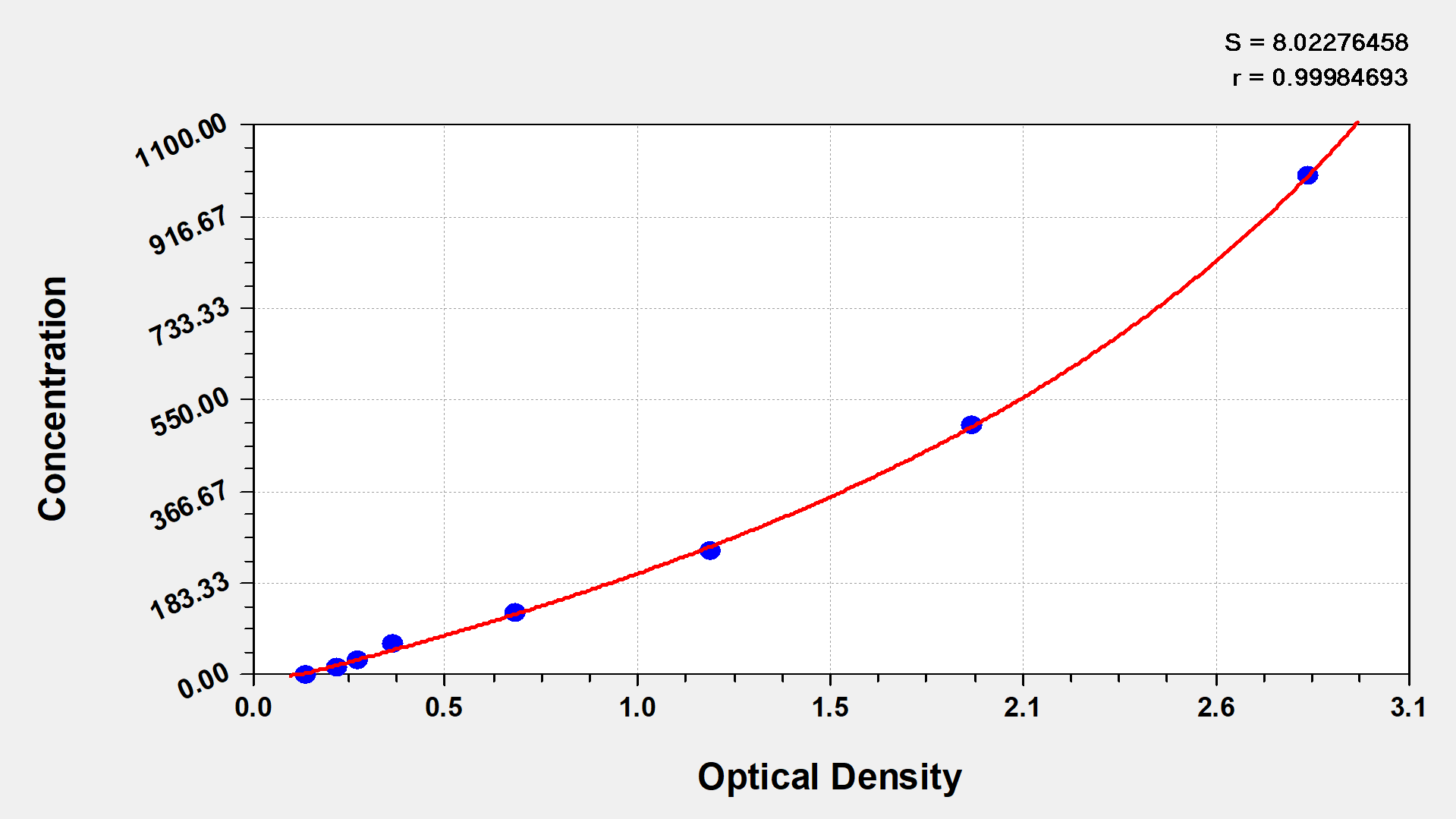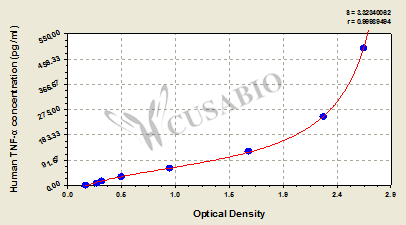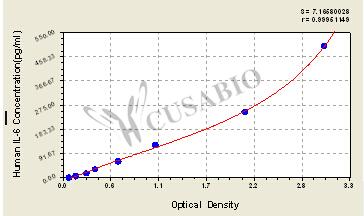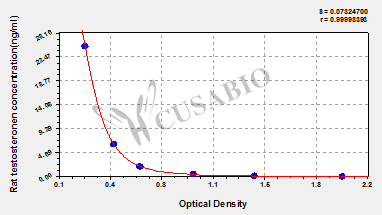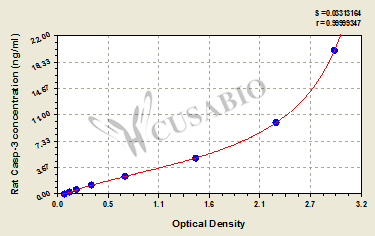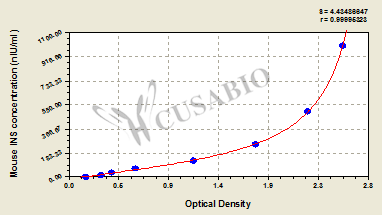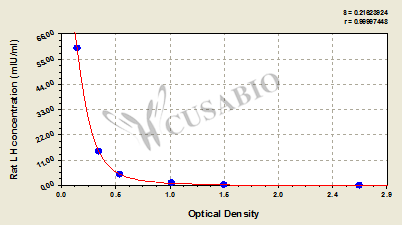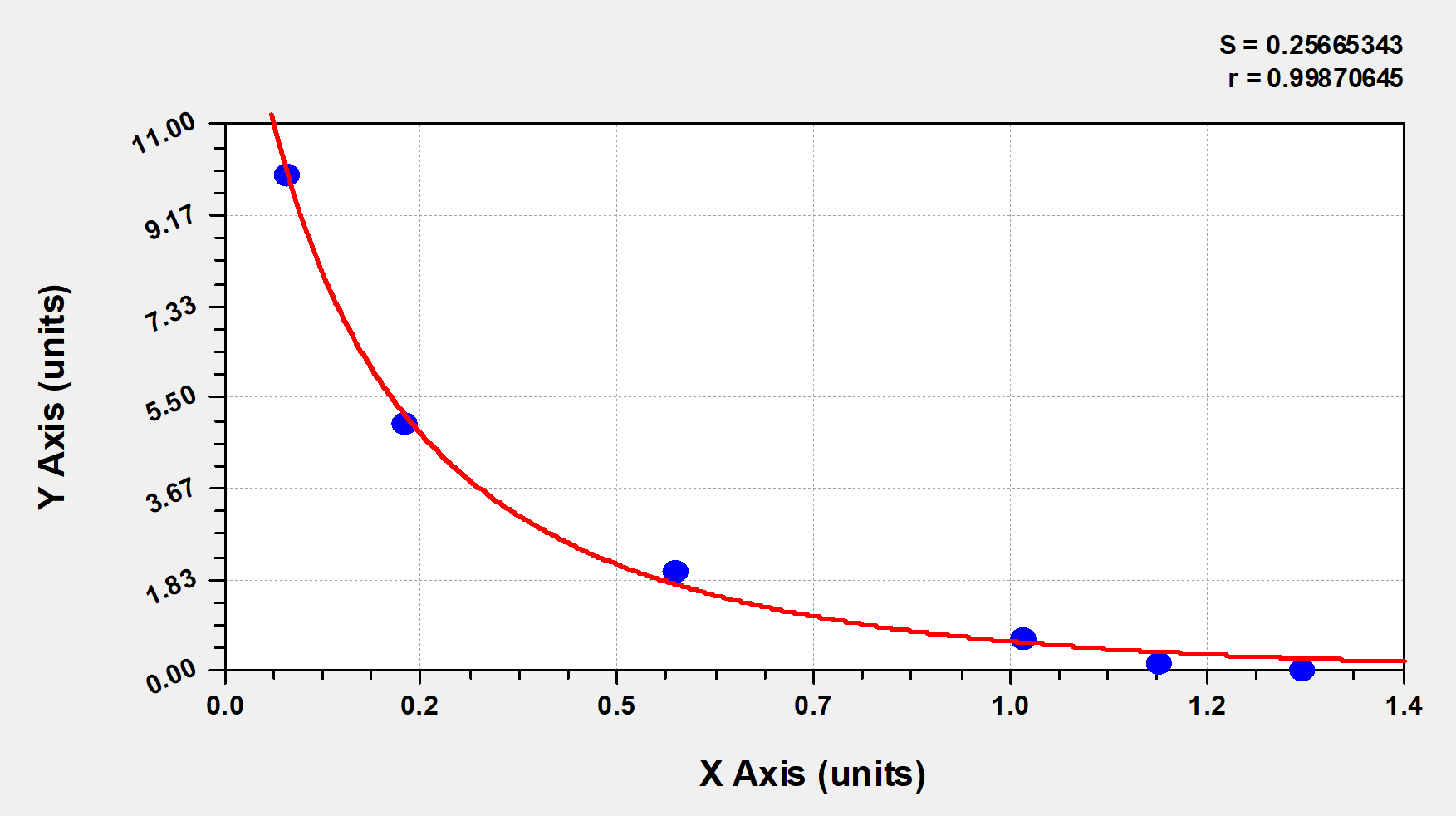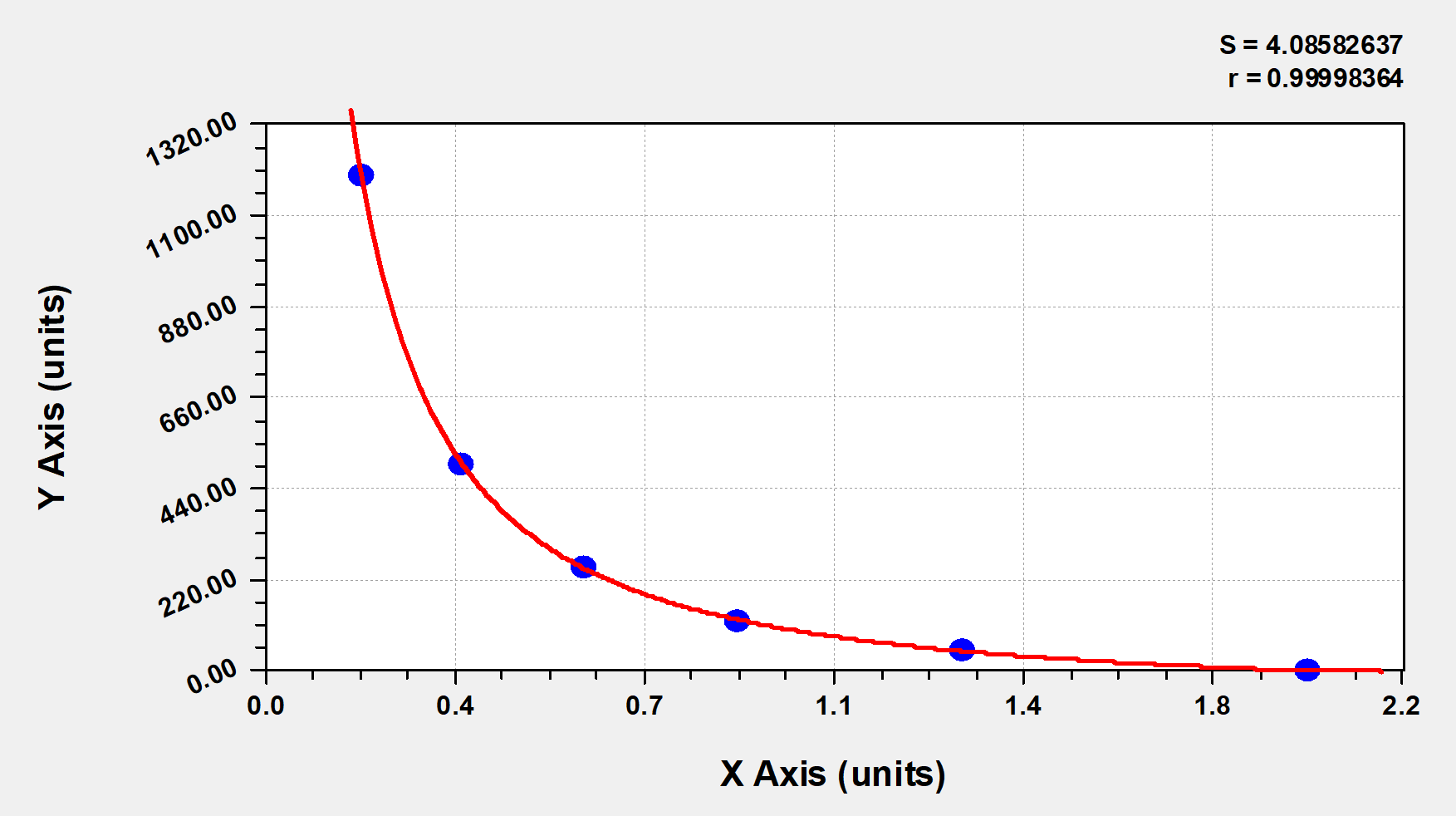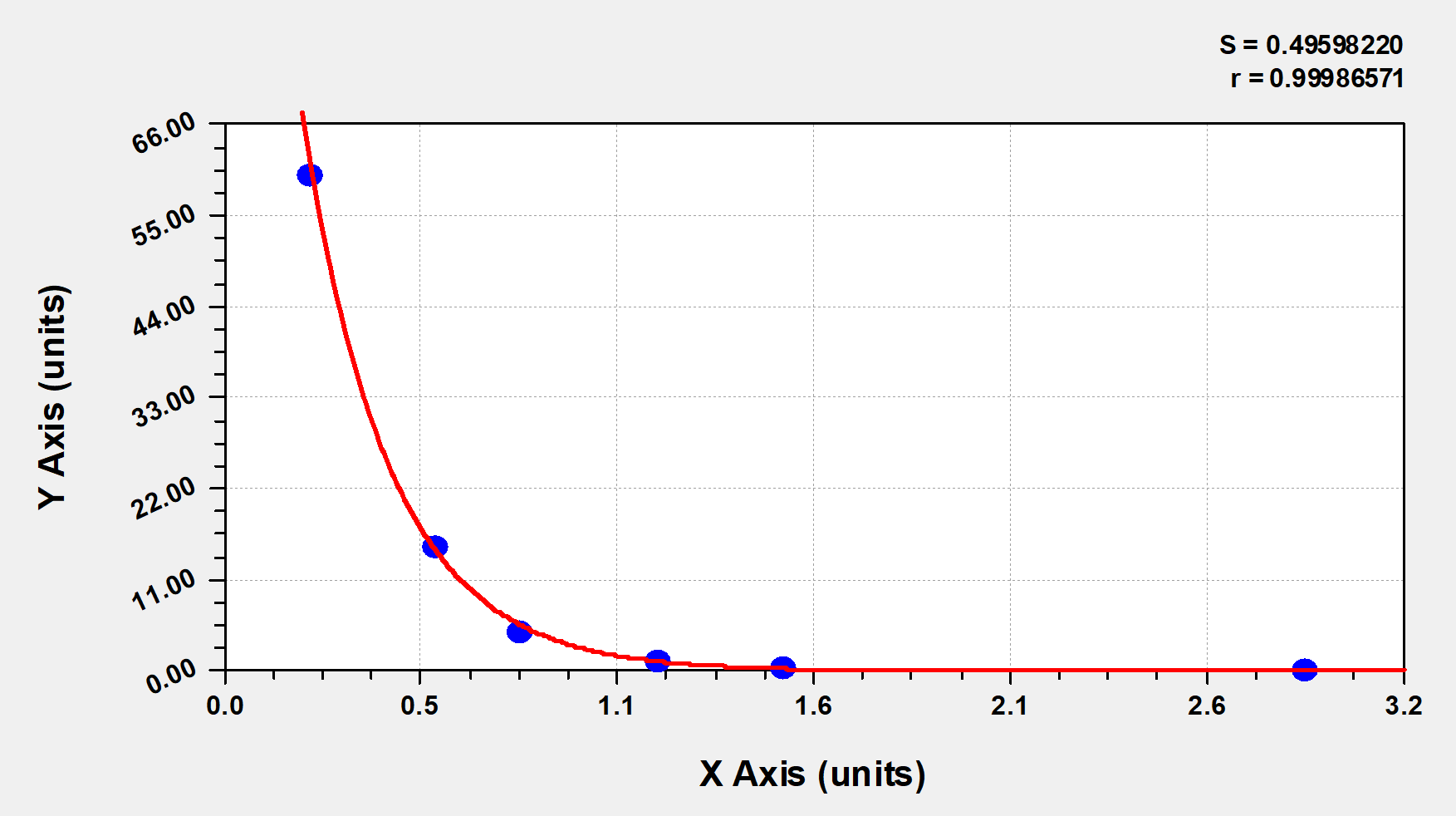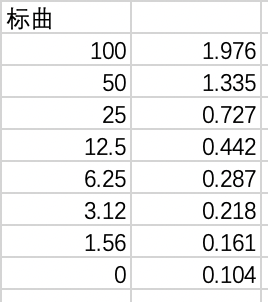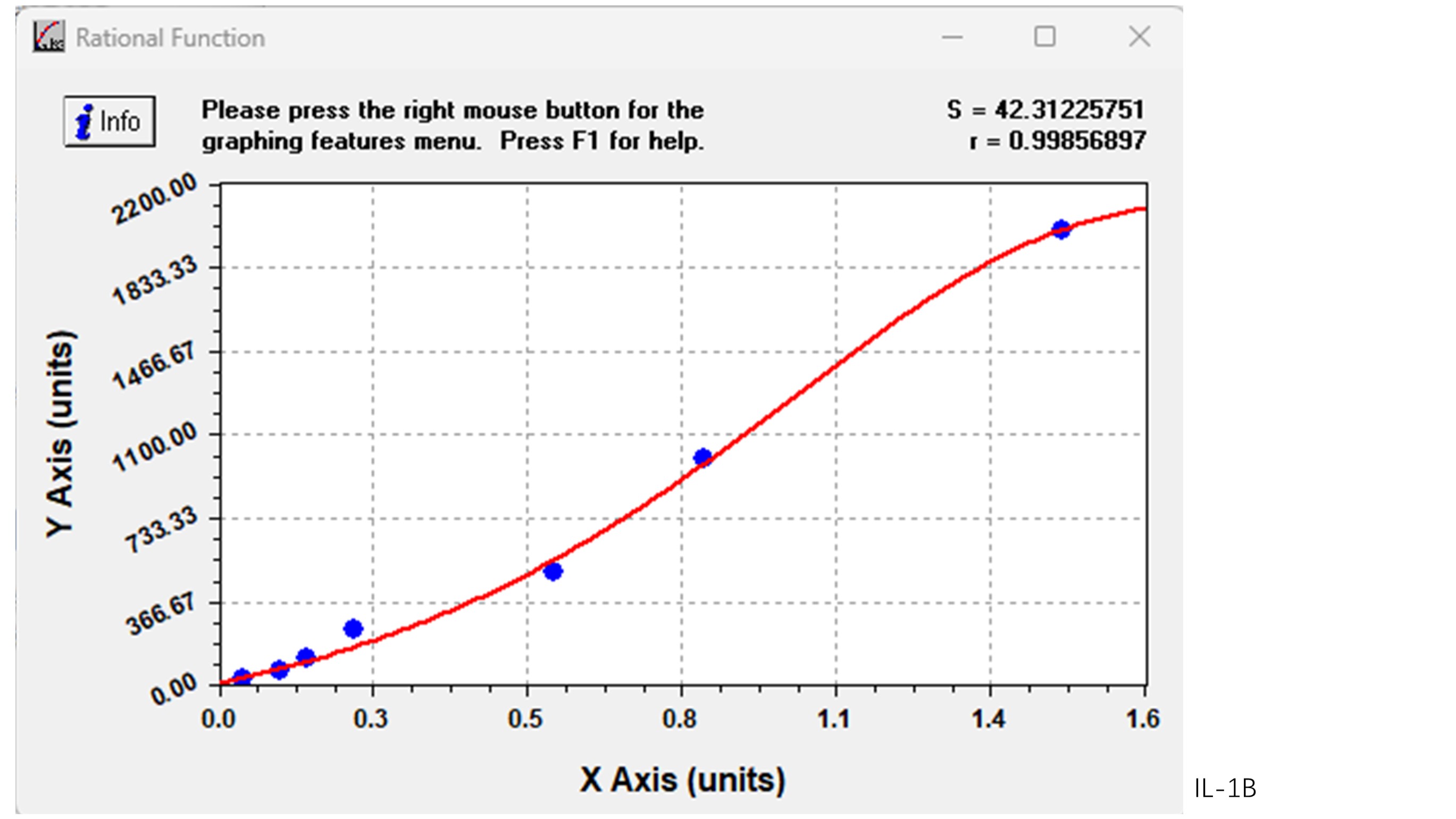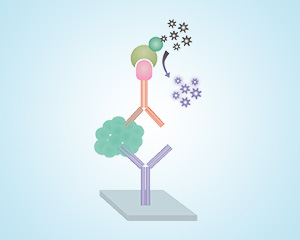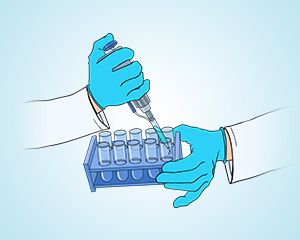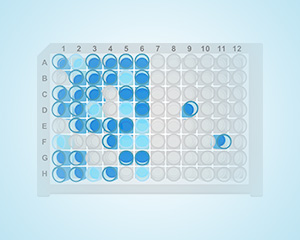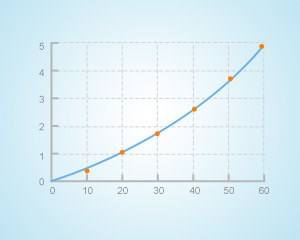● 8 Key Quality Control Standards
CUSABIO ELISA kits are ready-to-use ELISA kits with complete reagents, strict quality control, and validated performance. During the development process, multiple stringent steps are taken to ensure the outstanding quality of the kits, guaranteeing the products provided to customers have high standards in terms of linearity, specificity, stability, and sensitivity.
The actual detection sample value is calculated through the standard curve, and the correlation coefficient R of the standard curve for quantitative kits is greater than 0.99.
Take CSB-E07270h (Human Adiponectin (ADP) ELISA Kit) as an example of the standard curve.
| ng/ml | OD1 | OD2 | Average | Corrected |
|---|---|---|---|---|
| 100 | 2.839 | 2.897 | 2.868 | 2.718 |
| 50 | 1.968 | 1.974 | 1.971 | 1.821 |
| 25 | 1.144 | 1.192 | 1.168 | 1.018 |
| 12.5 | 0.709 | 0.733 | 0.721 | 0.571 |
| 6.25 | 0.433 | 0.450 | 0.441 | 0.291 |
| 3.125 | 0.303 | 0.301 | 0.302 | 0.152 |
| 1.562 | 0.242 | 0.223 | 0.233 | 0.083 |
| 0 | 0.149 | 0.151 | 0.150 |
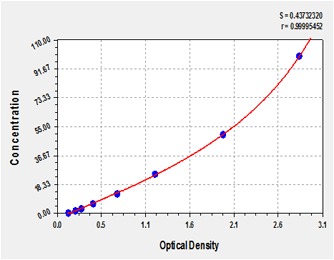
Specificity is a key indicator of ELISA kits. It is mainly affected by the interference of highly homologous proteins between different species, target protein ligands, or target protein receptors.
CUSABIO selects raw materials with high specificity to ensure the excellent specificity of ELISA kits, analyze cross-reactions and interference, and confirm that only the target analyte can be identified and detected.
The lower detection limit is an indicator of sensitivity. It is determined by factors such as the antibody titer used, and during the development process, the sensitivity and low background detection results are generally optimized to significantly improve the sensitivity of the kit. The lower the detection limit, the higher the sensitivity.
Sensitivity is determined by adding 3 standard deviations to the average O.D. obtained by repeating the zero standard.
Linearity is a criterion for determining the accuracy and specificity of the kit. To evaluate the linearity of the assay, samples with high concentration analytes are added to various matrices and diluted with sample diluent to produce samples with values within the dynamic range of the assay. Dilution linearity tests are performed for each validated sample type; if the results are within 80%-120% of the expected concentration for each dilution, the linearity is considered good. Linearity is crucial for the accurate measurement of analyte concentrations within the detection dynamic range.
Taking CSB-E07270h (Human Adiponectin (ADP) ELISA Kit) for example: Serum samples are diluted at 1:100, 1:200, 1:400, and 1:800. Cell culture supernatants are diluted at 1:2, 1:4, 1:8, and 1:16. The test values show good linearity within 80-120%.
| Sample | Serum(n=4) | |
|---|---|---|
| 1:100 | Average( %) | 91 |
| Range ( %) | 85-97 | |
| 1:200 | Average( %) | 97 |
| Range ( %) | 91-103 | |
| 1:400 | Average( %) | 93 |
| Range ( %) | 85-95 | |
| 1:800 | Average( %) | 95 |
| Range ( %) | 90-100 |
| Sample | Cell Culture Supernates(n=4) | |
|---|---|---|
| 1:1 | Average( %) | 95 |
| Range ( %) | 83-101 | |
| 1:2 | Average( %) | 97 |
| Range ( %) | 86-115 | |
| 1:4 | Average( %) | 90 |
| Range ( %) | 83-98 | |
| 1:8 | Average( %) | 91 |
| Range ( %) | 80-107 |
Recovery rate = measured target protein concentration / added target protein concentration * 100%
It reflects the degree of analyte loss during the sample analysis process; the higher the recovery rate, the higher the accuracy.
Recovery experiments can test whether the kit is affected by interfering factors. Using a natural sample matrix without added protein as a blank control, the recovery rate should be between 80% and 120%, indicating good kit performance.
For example, the recovery rate of CSB-E07270h (Human Adiponectin, ADP ELISA Kit):
| Sample Type | Average(%) | Range(%) |
|---|---|---|
| Serum (n=5) | 95 | 89-98 |
| EDTA plasma (n=4) | 97 | 90-100 |
The coefficient of variation (CV%) represents the consistency of the measurement, i.e., the degree of conformity for repeated measurements of the same sample.
Intra-assay accuracy: The precision testing method within the same batch: measure low, medium, and high-value test samples with the same batch of products 20 times (n) each, calculate the average and standard deviation (SD) of the 20 measurement results, and calculate the coefficient of variation (CV) using the formula CV = standard deviation/average × 100%.
To evaluate the accuracy of CSB-E07270h (Human Adiponectin (ADP) ELISA Kit): CV% <8%.
Inter-assay accuracy: The precision testing method between different batches: measure low, medium, and high-value test samples with three batches of products 20 times (n) each, calculate the average and standard deviation (SD) of the 20 measurement results, and calculate the coefficient of variation (CV) using the formula CV = standard deviation/average × 100%.
To evaluate the accuracy of CSB-E07270h (Human Adiponectin (ADP) ELISA Kit): CV% <10%.
| Intra-Assay Precision | Inter-Assay Precision | |||||
|---|---|---|---|---|---|---|
| Sample | 1 | 2 | 3 | 1 | 2 | 3 |
| n | 20 | 20 | 20 | 20 | 20 | 20 |
| Mean(ng/ml) | 5.345 | 16.273 | 29.471 | 29.471 | 20.841 | 34.563 |
| SD | 0.24 | 0.62 | 0.62 | 0.43 | 1.65 | 2.34 |
| CV(%) | 4.49 | 3.81 | 6.42 | 5.14 | 7.92 | 6.77 |
The better the stability, the longer the storage time.
The main components and assay plates of CUSABIO ELISA kits are subjected to heat damage testing at 37°C for 7 days, and then compared with materials stored at 4°C. After 7 days, if the OD value is ≤30%, this is considered satisfactory.
Some reagents can withstand high-temperature heat damage at 60°C, which greatly minimizes the inactivation of antigens and antibodies during long-distance transportation and storage.
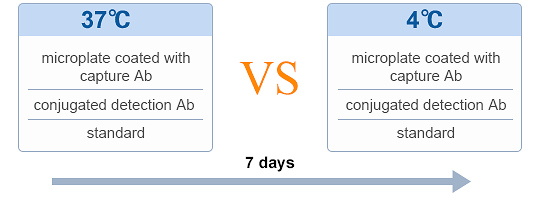
CUSABIO ELISA kits can detect natural samples, selecting appropriate natural samples (serum, plasma, cell supernatant, etc.) according to the target properties, providing customers with the most accurate experimental data reference.
Taking CSB-E07270h (Human Adiponectin (ADP) ELISA Kit) as an example, we previously tested serum and plasma samples at a 1:500 dilution, and the test values were S3-S5.
● 15 Research Areas

● 20+ Species
CUSABIO ELISA kits cover more than 20 species, involving multiple research areas, meeting the needs of different customers.
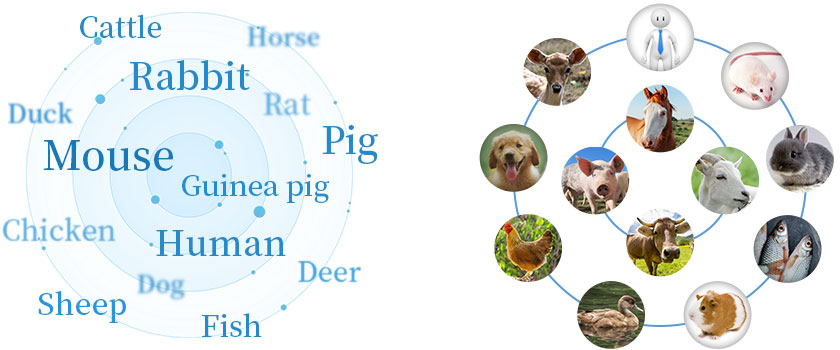
● Wide Range of Detectable Samples
CUSABIO ELISA kits can detect various biological samples, including serum, plasma, body fluids such as urine, cell culture supernatants, and cell/tissue lysates.
● Ready for Research Use
Each ELISA kit contains a plate coated with antibodies and ready-to-use reagents. Simple operation, no special handling is required.

● 27,000+ Published Publication
CUSABIO ELISA kits are trusted by thousands of researchers worldwide and have been cited in many prestigious high-impact journals, such as Nature, Science, Cell, Immunity, Nature Medicine, Cell Metabolism, Gastroenterology, etc.
